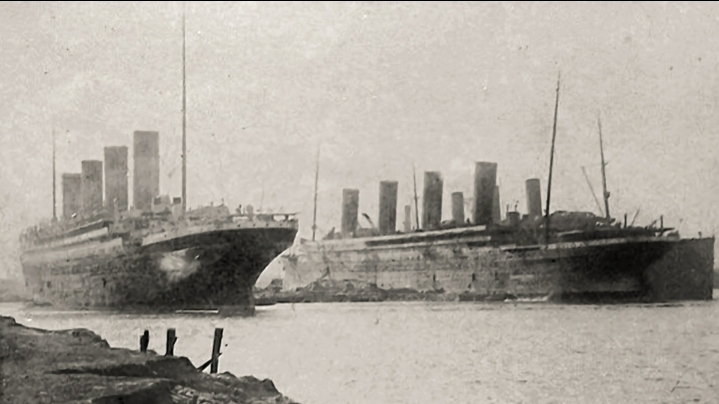Darfur and Genocide
- Backing Janjaweed militias in systematic attacks against civilians from the same ethnic groups as rebel forces, primarily the Fur, Zaghawa, and Masalit;
- Bombing civilians from aircrafts;
- Committing massive human rights abuses, including murder, rape, and persecution based on race, ethnicity, and religion;
- Impeding international humanitarian access, resulting in deadly conditions of life for displaced people;
- Harassing internally displaced persons;
- Using rape as a weapon of war.
Large-scale government attacks against civilians declined after 2005. However, most of those displaced by the violence did not return home for fear that their villages would be attacked again. Attacks on civilians continued, on a smaller scale, for years.
The International Response
The violence in Darfur in the early 2000s received enormous public and international attention. This attention enabled international policy responses to help prevent future violence in the years that followed. It also helped to achieve justice for groups targeted by the Sudanese government’s mass atrocities. Human rights advocates organized public protests and campaigns in communities around the United States and globally. They called for the United States, the United Nations (UN), and supporters of the Sudanese government, such as China, to step in to prevent genocide in Darfur.
Naming the Violence in Darfur a Genocide (2004 and 2005)
Partially in response to pressure from human rights advocates, members of the US government were some of the first international figures to label the violence in Darfur a genocide. In 2004 and 2005, respectively, Secretary of State Colin Powell and President George W. Bush issued statements condemning the ongoing genocide for which the Janjaweed and Sudanese government were considered responsible.
The UN, the African Union (AU), and the European Union accused the Sudanese government and its allied militias of committing crimes against humanity. However, they disagreed that genocide had occurred.
The United Nations-African Union Peacekeeping Force
In 2004, the African Union Mission in Darfur (AMIS) was established to monitor the Humanitarian Ceasefire Agreement signed earlier that year. African Union and UN efforts to negotiate a permanent settlement expanded in the years following the initial AMIS deployment. The effort resulted in the short-lived Darfur Peace Agreement (DPA) in 2006. In 2007, the United Nations Security Council authorized a hybrid United Nations-African Union peacekeeping force (UNAMID) to oversee the implementation of the DPA. Throughout its tenure, the force was underfunded and understaffed. It was also vulnerable to attacks from Sudanese government forces and rebel groups alike. These constraints hindered UNAMID’s ability to fully implement its mandate to protect civilians in Darfur. From 2007 to 2014, UNAMID was the largest peacekeeping force in the world. It formally ceased all major operations in December 2020.
Justice and the International Criminal Court
In March 2005, the UN Security Council referred the case of Sudan to the International Criminal Court (ICC) for investigation of war crimes, crimes against humanity, and genocide. In July 2008, ICC prosecutor Luis Moreno-Ocampo requested the court issue an arrest warrant for Sudanese President al-Bashir. The ICC charged al-Bashir with crimes against humanity and war crimes for the government's role in orchestrating violence in Darfur. In 2010, three counts of genocide were added to the list of charges. However, in 2014, ICC prosecutor Fatou Bensouda announced that the case against al-Bashir would be suspended because of lack of enforcement by international actors.
Political Instability
A popular uprising in the spring of 2019 led to the removal of al-Bashir and the ruling National Congress Party (NCP). The NCP had been in power since 1989. The uprising ushered in a period of civilian rule and a new constitution. It also raised the possibility that al-Bashir and other Sudanese leaders indicted by the ICC could be held accountable for genocide and other violations of international law.
Discussions between the post-2019 government and the ICC involved a potential hybrid prosecution of al-Bashir. It would include both international prosecutors and domestic judicial procedures. In August 2021, the transitional government indicated that they were willing to turn over al-Bashir and other indicted leaders to the ICC.
In October 2021, however, the Sudan Armed Forces (SAF) and the Rapid Support Forces (RSF) staged a military coup and formed a Transitional Military Council (TMC). Despite promises of transition to civilian rule, the TMC undid many of the reforms initiated by the civilian government in 2019. The coup leaders did not restore al-Bashir to power. However, many of the new military leaders were also responsible for earlier human rights abuses in Darfur and other regions of Sudan. Sudanese authorities have not turned al-Bashir or other individuals with outstanding arrest warrants over to the ICC.
New Violence in 2023
In April 2023, new fighting began between the SAF and RSF.
After the October 2021 coup, RSF leaders—especially General Mohamed “Hemedti” Hamdan—continued to gain influence as members of the ruling TMC government. In December 2022, in the face of popular protests, the SAF, RSF, and Sudanese political parties negotiated a deal that would have slowly led to a new civilian administration in Sudan. The RSF, however, rejected the idea of formally integrating into the SAF. In April 2023, they attacked SAF positions in Khartoum and key military sites. The attacks sparked yet another wave of violence.
Since the fighting broke out in April 2023, both the SAF and the RSF have been accused of committing crimes against civilians. In June 2023, the United States Holocaust Memorial Museum warned that Darfuri civilians face significant risks of genocide. Several factors point to the risk of genocide. They include systematic attacks by the RSF and allied militias, impunity for past crimes, and new hate speech against marginalized groups. By the end of June 2023, violence by the SAF and the RSF led to the displacement of more than 2.5 million additional people,1 including more than 500,000 people as refugees to surrounding countries.



Comments